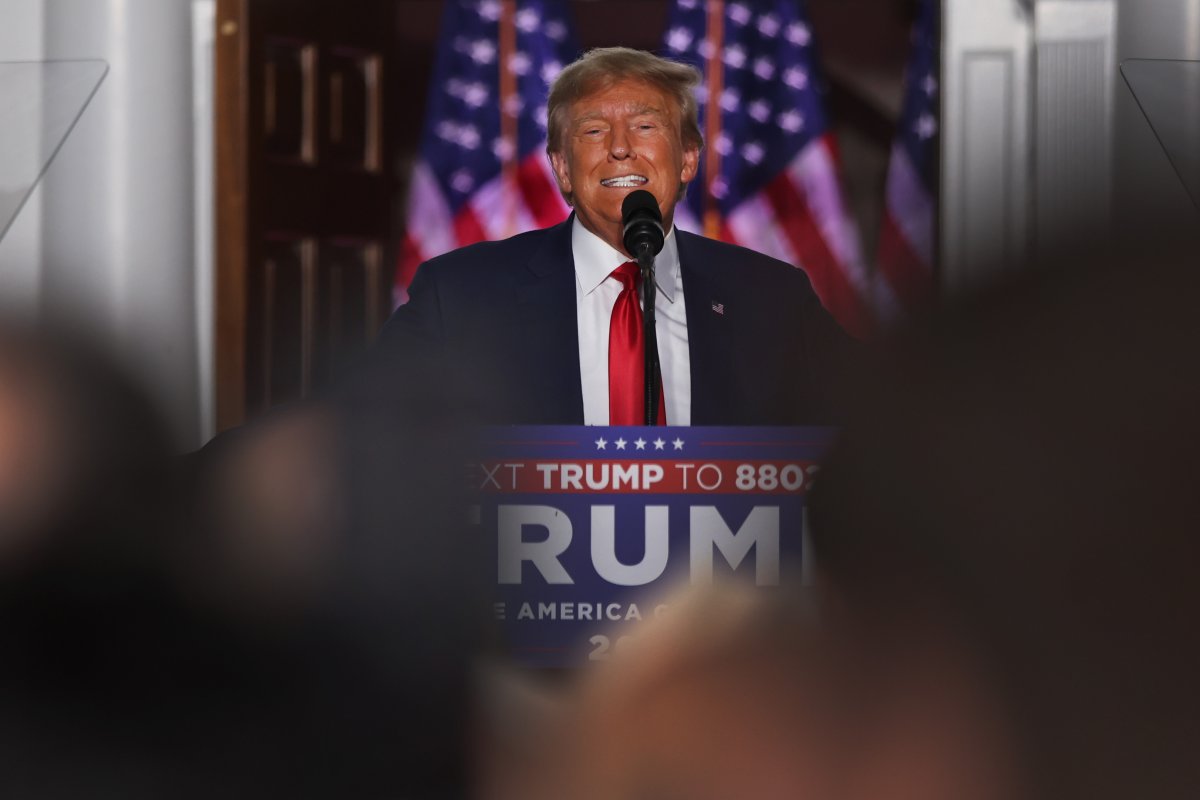Republican presidential candidate Donald Trump is proposing the revival of a controversial tool from Richard Nixon's administration to cut down on federal spending, though congressional experts say the effort has little to no chance of success.
In a message to supporters Tuesday, Trump rolled out a plan to restore executive branch authority to "impound" federal funds to "cut waste, stop inflation, and crush the deep state" should he win the 2024 presidential election.
While Congress has the primary power to set budgets, the White House, until the passage of the Congressional Budget and Impoundment Control Act of 1974, had the power to claw back excess funding Congress had allocated to programs if they determined the amount of money was more than that agency needed. The power was long seen as a presidential check on congressional overspending.

For Trump, the policy shift represents a silver bullet to address the nation's economic woes amid a showdown between the Democratic-led White House and the GOP-led House of Representatives over federal spending. Simply put, there's no need to negotiate when the decision on how much money to spend is yours and yours alone to make.
"When I return to the White House, I will do everything I can to challenge the Impoundment Control Act in court, and if necessary, get Congress to overturn it. We will overturn it," the former president said in a video announcement. "I will then use the president's long-recognized Impoundment Power to squeeze the bloated federal bureaucracy for massive savings. This will be in the form of tax reductions for you. This will help quickly to stop inflation and slash the deficit."
Agenda47: Using Impoundment to Slash Waste, Stop Inflation, and Crush the Deep State pic.twitter.com/8oGxCc7ST4
— Team Trump (Text TRUMP to 88022) (@TeamTrump) June 20, 2023
Throughout history, impoundment was seen as a political agreement between Congress and the White House to maintain spending at responsible levels. Presidents could use their power to curtail excess money from going out, while Congress had the power to punish presidents who overstepped their boundaries and cut too much spending.
And when a president proved a willingness to abuse that power, Congress revoked it.
During the Nixon administration, Congress passed a piece of legislation called the Federal Water Pollution Act of 1972, which proposed to build out water purification infrastructure in cities across the country. Nixon balked at the cost of the proposal, and vetoed the bill after projected costs dramatically exceeded the administration's original estimates.
Congress later voted to override Nixon's veto and, the following budget cycle, moved to appropriate $7 billion for the program. Nixon then invoked his impoundment authority to cut $3 billion from the program, putting him at odds with a Congress already scrutinizing his role in the Watergate break-in and eventually, prompting him to sign the Impoundment Control Act.
While Trump characterized the policy as a handcuff on the Oval Office's ability to reign in wasteful spending, Joshua Huder, a Senior Fellow at the Government Affairs Institute at Georgetown University, told Newsweek that the policy post-Nixon has proven to be a valuable bulwark between the presidency and Congress's authority on the budget.
Without the Impoundment Control Act, the representative of a single political party would have vast leeway over a right that has long been entrusted to the bipartisan coalitions within the House and the Senate.
"It is [Congress's] core lever in terms of how the government functions," Huder said. "The president is essentially the CEO of government, but the CEO has to respond to Congress, because Congress is the one that actually appropriates all the money for this stuff."
Ironically, the Impoundment Control Act was also among the primary contributors to Trump's first impeachment, when a federal agency found his Office of Management and Budget had improperly withheld congressional funds for his own political goals.
In 2020, the Government Accountability Office issued a report accusing Trump of violating the act after threatening to withhold nearly $214 million in congressional appropriations to Ukraine in exchange for compromising intelligence on the Biden family.
"Faithful execution of the law does not permit the president to substitute his own policy priorities for those that Congress has enacted into law," the GAO wrote in its findings.
Huder said that's the main reason the law exists: to ensure one individual does not have unilateral authority over taxpayer dollars.
"It strikes at the core of the Constitution," he told Newsweek. "Congress says that no funds shall be withdrawn from the Treasury except for consequence of an appropriation passed by Congress. It's really fundamental to our idea of a democratic republic: The people control the money, not the President. We got away from monarchies for this very reason."
Uncommon Knowledge
Newsweek is committed to challenging conventional wisdom and finding connections in the search for common ground.
Newsweek is committed to challenging conventional wisdom and finding connections in the search for common ground.
About the writer
Nick Reynolds is a senior politics reporter at Newsweek. A native of Central New York, he previously worked as a ... Read more
To read how Newsweek uses AI as a newsroom tool, Click here.






